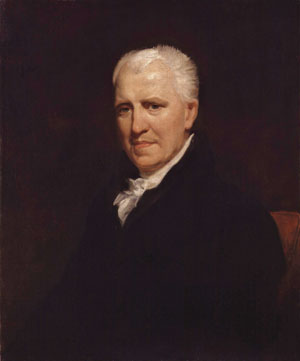The Fens
George Crabbe
On rode Orlando, counting all the while
The miles he passed, and every coming mile;
Like all attracted things, he quicker flies,
The place approaching where the attraction lies;
When next appeared a dam—so called the place—
Where lies a road confined in narrow space;
A work of labour, for on either side
Is level fen, a prospect wild and wide.
With dikes on either hand by ocean's self supplied
Far on the right the distant sea is seen.
And salt the springs that feed the marsh between;
Beneath an ancient bridge, the straitened flood
Rolls through its sloping banks of slimy mud;
Near it a sunken boat resists the tide.
That frets and hurries to the opposing side;
The rushes sharp, that on the borders grow,
Bend their brown flowerets to the stream below.
Impure in all its course, in all its progress slow:
Here a grave Flora scarcely deigns to bloom.
Nor wears a rosy blush, nor sheds perfume;
The few dull flowers that o'er the place are spread
Partake the nature of their fenny bed;
Here on its wiry stem, in rigid bloom,
Grows the salt lavender that lacks perfume;
Here the dwarf sallows creep, the septfoil harsh,
And the soft slimy mallow of the marsh;
Low on the ear the distant billows sound,
And just in view appears their stony bound;
No hedge nor tree conceals the glowing sun,
Birds, save a watery tribe, the district shun,
Nor chirp among the reeds where bitter waters run.
